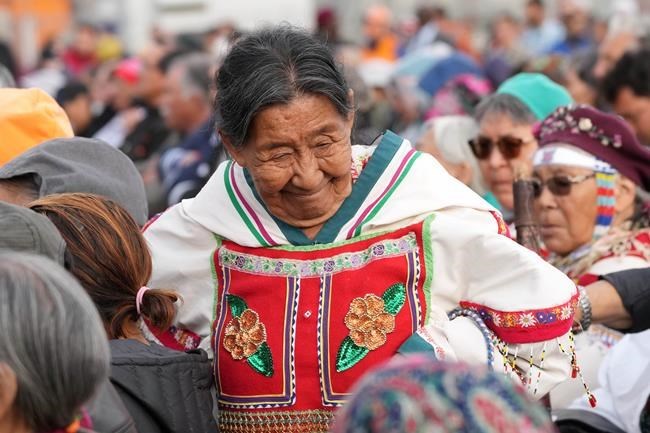OTTAWA, W.Va. ‚Äî Quebecers are more inclined to say Jacques Cartier ‚Äî or even Christopher Columbus ‚Äî "discovered Canada," compared to the rest of the country, which points to Indigenous people, a new survey suggests.¬Ý
The results are based on a web study the polling firm Leger did for the Association for Canadian Studies from July 8 to 10, in which it asked a series of questions around historical narratives in the country.¬Ý
The survey found that when asked the open-ended question of "who discovered Canada," 21 per cent of overall respondents named Indigenous people. Some 16 per cent offered up the name of Jacques Cartier, the French explorer who made several voyages to the country's shores and waterways beginning in 1534.¬Ý
The survey reports another 15 per cent of respondents said they didn't know.¬Ý
It says a remainder named a mix of the Vikings, Christopher Columbus and Samuel de Champlain, another explorer credited for the founding of Quebec and helping colonize the region for France.¬Ý
The survey polled 1,764 Canadians and cannot be assigned a margin of error because online polls are not considered truly random samples.
When the results were broken down by age, those 18 to 54 tended to say Indigenous Peoples in higher numbers than those 55 and older.¬Ý
The concept of "discovery" is one that has been challenged as of late, most recently during Pope Francis' visit to Canada.¬Ý
The 85-year-old pontiff faced repeated calls last month to denounce a series of edicts, known as papal bulls, dating back to the 15th century, which countries used to justify colonizing lands thought to be uninhabited when in fact they were home to Indigenous people.¬Ý
The survey suggests a divide between how residents in Quebec and the rest of the country approach the question of "who discovered Canada."
It reports 46 per cent of Quebecers credit Cartier for Canada's discovery, compared to 11 per cent in the province who picked Indigenous people.¬Ý
By contrast, results show 20 per cent or higher of respondents across British Columbia, Altanic Canada, the Prairies, Alberta and Ontario chose Indigenous people, while less than 10 per cent from each picked Cartier.¬Ý
Association president Jack Jedwab says inside Quebec there appears to be a greater tendency to see the country through the lens of French and English nations.¬Ý
"Whereas in the rest of Canada now, there's this movement to see the country more from the lens of three founders," including Indigenous people, he says.
"There's more exposure to that perspective than there is in Quebec," he adds.¬Ý
When it comes to Columbus, the survey reports 20 per cent of Quebec respondents saw him as discovering Canada, compared to less than 15 per cent of all respondents from other regions polled.¬Ý
Jedwab says the fact Columbus was picked at all is "worrisome."¬Ý
"I don't know what they're reading, but clearly that's not something you'd find in any Canadian history text."
The survey also asked Canadians whether they believe they live on unceded territory ‚Äî lands Indigenous people never legally surrendered to government authorities.¬Ý
Of all respondents, it says 66 per cent answered "no," compared to 34 per cent who said "yes."
According to its regional breakdown, the survey found nearly 60 per cent of respondents in B.C. ‚Äî the highest of any area ‚Äî said they lived on unceded Indigenous territory, compared to almost 44 per cent who said they didn't.¬Ý
Survey results show the lowest was in Quebec, where only around 20 per cent of residents said they lived on unceded territory compared to 79 per cent who didn't.
Unlike other provinces, most of B.C. is considered to be unceded Indigenous territory. When the province joined Confederation in 1871, its government didn't recognize Indigenous title and did not see a need for treaties.
Jedwab believes the findings suggest varying levels of awareness residents in different provinces have around Indigenous land issues.¬Ý
For example, he points out that political leaders in Quebec rarely do Indigenous land acknowledgments.
"When people are doing the land acknowledgment, there's a reminder, a built-in reminder, about the founding of the country … and what it was founded upon."
This report by The Canadian Press was first published Aug. 25, 2022.
Stephanie Taylor, The Canadian Press


.png;w=120;h=80;mode=crop)

